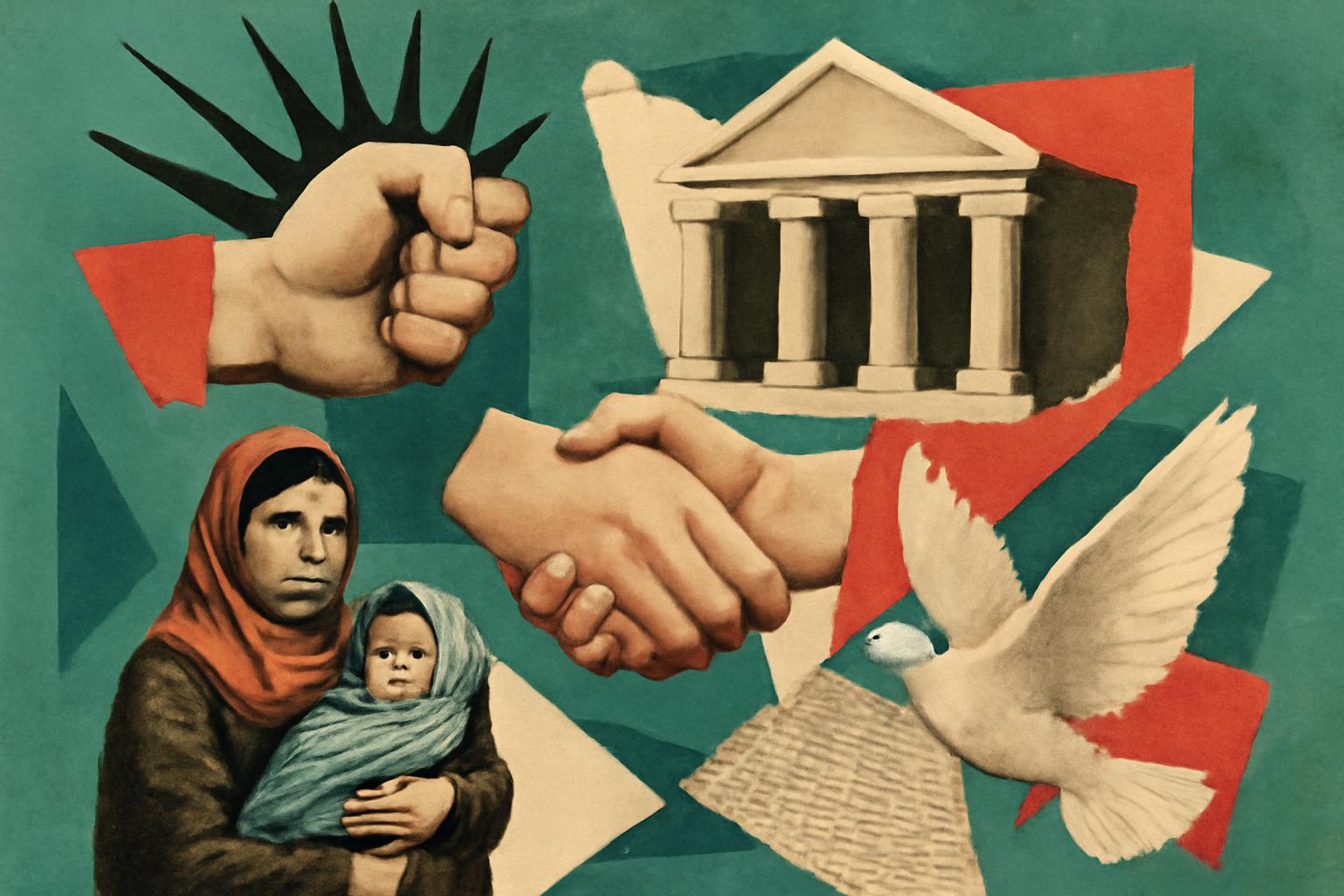The state’s latest humanitarian theater confirms what Hayek warned: central planners cannot know enough to run relief, admission, or migration with any humility or accuracy. They pretend to orchestrate compassion from a desk, while dispersed knowledge—the needs, risks, and opportunities of individual lives—slips through their fingers. The result is not justice but a cascade of broken promises, mismatched incentives, and the odd spectacle of coercive kindness we’re all forced to pay for.
Nozick gives us a firm standard: rights precede any obligation to “solve” someone’s problem at the taxpayers’ expense. If you want to help refugees, you do so by voluntary exchange and voluntary charity, not by grabbing one person’s labor to fund another’s survival. When a government asserts a right to promise admission, shelter, or welfare to strangers, while coercively extracting funds from citizens to underwrite that promise, it violates the fundamental rights it is supposed to protect. The letter and the cases behind it reveal the state treating people as objects of policy rather than as ends in themselves, subject to the coercive power of taxation and policy deadlines rather than the voluntary decisions of individuals and private institutions.
Rand would insist that what is being called humanitarian aid is really a test of moral principle: does the individual have a right to live his life free from coercive redistribution, or must he be compelled to subsidize others’ alleged needs through taxation? The state’s “promises” and “commitments” are not moral acts of voluntary benevolence; they are coercive claims on others’ lives. If aid is moral, it must arise from rational self-interest and voluntary association, not from a bureaucratic budget line. The plight of those who trusted state assurances exposes the hollowness of moral-Ethical posturing when it rests on coercion, not on voluntary, accountable action.
Hayek’s critique of central planning rings clear: the knowledge required to run a fair, effective, and humane asylum regime is too dispersed, too dynamic, and too context-specific for parliamentarians and ministries to orchestrate. The system cannot adapt to shifting conditions in Afghanistan, Pakistan, or Kabul; it cannot foresee the unintended consequences of deportations, delayed decisions, or “temporary” hold orders that become permanent. A liberal order should favor rules that allow people—through private channels, private sponsorships, and market-tested services—to coordinate their own lives without turning every act of mercy into a state-backed project with coercive funding and misaligned incentives.
What would a libertarian alternative look like in this space? First, shrink the state’s footprint on migration to the minimum necessary to protect rights and enforce contracts, while denying the state the prerogative to claim moral superiority through forced charity. Second, privatize relief and sponsorship networks: let churches, NGOs, universities, employers, and private individuals offer asylum sponsorships, housing, and legal aid on a fully voluntary basis. Let the market, not the government, decide the supply of shelter beds, legal counsel, and resettlement pathways through voluntary contracts and reputational incentives. Third, eliminate the notion that the state can bind future taxpayers to perpetual commitments; if a case requires assistance, it should be funded by voluntary contributions or by private contracts, not by coercive taxation that imposes ongoing obligations on every citizen.
The letter’s call for repatriation, negotiations with host authorities, and the protection of at-risk individuals outside the state’s “admission program” exposes a deeper truth: the intervention the state calls humanitarian is often a coercive mechanism that substitutes political power for moral responsibility. Rand would say: if a private citizen wants to aid a stranger, she should have the freedom to do so; if she does not, she should not be compelled to subsidize someone else’s rescue. Nozick would remind us that a border regime exists not to enforce universal welfare but to prevent rights violations; beyond that minimal function, every further redistribution is a slippery slope toward coercion and grievance politics. Hayek would add that policy has to be judged by whether it enlarges or narrows the space where individuals can use their own knowledge to lead their lives; this system does neither.
In the end, the best way to honor those who trusted the promise of asylum is to restore responsibility to voluntary human action. Abolish or drastically reform state-run admission programs, expand private sponsorship and aid networks, and refuse to cloak coercive funding in the garment of compassion. If there is a genuine humanitarian impulse, let it be measured by voluntary acts, contract-based arrangements, and open competition among private providers—where success is judged by results, not by the ability to mobilize the force of the tax clock. That is the Hayek-Nozick-Rand synthesis: a society that treats people as ends rather than as means, that limits coercion, and that unlocks the spontaneous cooperative order through voluntary, rights-respecting action rather than through state-managed charity.
